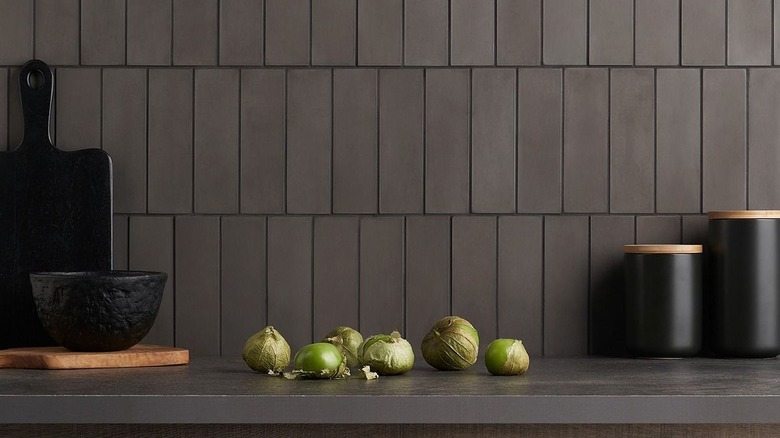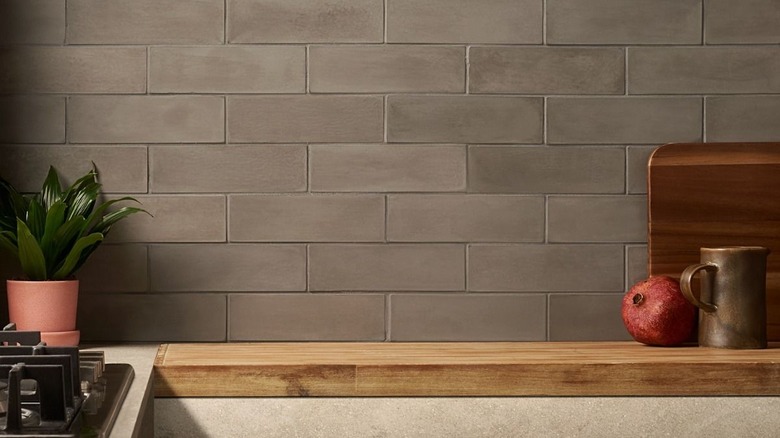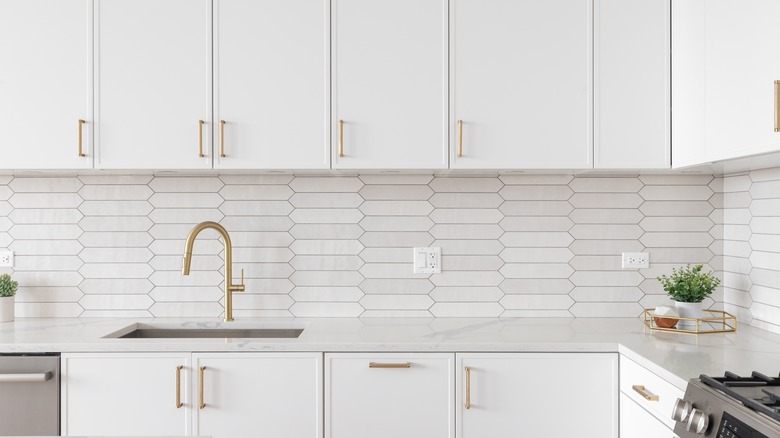Why You Should Avoid A Cement Tile Backsplash In The Kitchen
Homeowners love to get creative with their kitchen backsplashes and for good reason. They help add personality to a space that often looks formulaic. You can't really get too crazy with your cabinets or appliances, so one place where you can let your taste shine is in the backsplash. But you might want to think twice if you're toying with the idea of using cement tile — while it might look magazine-worthy, it won't stand up to the abuse of a kitchen.
Cement is a poor option because it is primarily made out of limestone, which is porous. Because of that, it will soak up any kind of moisture, including everything from grease to sauce spills. This will result in unsightly stains, making you quickly regret your decision. "I've done a project that really didn't go so smoothly where we did a cement tile that just really didn't work," designer Jamie Lynn Gernert told Southern Living. "It was constantly dirty and I will probably never do a tile backsplash ever again — Even if the client is really really into it." It's best to steer clear.
Why concrete tiles aren't durable
This might confuse some people since concrete is typically used in rough spaces such as garages and basements. So isn't it durable? The answer is yes and no. It's durable in that it won't crack easily since it's made from a thicker material, but it's not durable in that it won't stain or fade. While porcelain tiles are made from clay topped with a thick glaze that is baked in a kiln with temperatures of around 2,300 to 2,400 degrees Fahrenheit. Cement tiles aren't fired in a kiln and are cured at room temperature.
Since it's so porous, cement can stain even if you seal it. Unfortunately, the seal doesn't act like a magic shield. In addition to that, you will need to reseal it multiple times a year if you're worried about blotches, with some tiling experts recommending doing so as often as once a month. That's not exactly low maintenance.
What to use instead
The best backsplash tile option is either ceramic or porcelain. Both are nonporous, meaning they don't stain, fade, or discolor as easily. Because they're both made from clay, they can withstand high heat, won't change composition under steam, and can last decades if taken care of properly.
They're also simple to clean. Unlike porous materials such as concrete, marble, and wood, you won't need to worry about fussy care instructions. You can use everything from vinegar to cleaning spray, making them extremely low maintenance. In addition, both types of tiles come in a wide variety of colors, patterns, glazes, and textures, allowing you to create whatever design you want. You can choose simple white subway tiles or complicated floral mosaic prints. You can select something high-gloss and mirror-like, or go for something matte and textured. When you take this into account, you're not missing much by forgoing concrete tiles.


